ARTICLE AD BOX
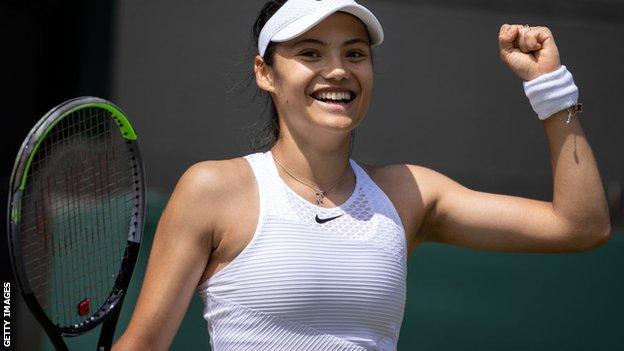 Emma Raducanu first came under the spotlight at Wimbledon last year and has not left it since
Emma Raducanu first came under the spotlight at Wimbledon last year and has not left it since| Venue: All England Club Dates: 27 June-10 July |
| Coverage: Live across BBC TV, radio and online with extensive coverage on BBC iPlayer, Red Button, Connected TVs and mobile app. |
Emma Raducanu's first Wimbledon since her US Open win is unlikely to be the place to temper expectations.
She is the British number one, a Grand Slam champion and an obvious candidate for a Centre Court billing.
The fact she has had struggles with injuries and has not settled on a coach will do nothing to tone down excitement levels - because that is not how it works at your home Grand Slam.
"Everything is about you as a British player at Wimbledon. How many newspapers, online sites, how many journalists are there," former British number one Greg Rusedski told BBC Sport.
"We get very British-centric especially if there is someone who we think can win the title or has a chance to win the title.
"With Emma and what she has achieved, there is a huge expectation."
So, how will she handle it and are we all - fans, media and her opponents - expecting too much?
- Sports Desk: Can Raducanu shake off her US Open hangover?
- Raducanu & Murray upbeat after SW19 injury doubts
- Raducanu faces Van Uytvanck in Wimbledon opener
What a difference a year makes
A year ago a teenage British number 10 made her Wimbledon main-draw debut with minimum fuss on Court 18.
The wildcard's fightback from 4-1 down to take the first set followed by a 6-0 second set was noted, but back then the media and public had bigger names to follow to give it too much thought.
By the end of the second round, this 18-year-old was the sole British woman left in the singles draw - by the end of the third, the only Briton full stop.
And so the spotlight turned firmly on Emma Raducanu and the story of 'A-level student to tennis star' captured imaginations and headlines as she reached the fourth round.
Her run ended when she retired from her last-16 match against Ajla Tomljanovic with breathing difficulties, later saying that the "whole experience" of the whirlwind week had "caught up" her.
Just two months later came that implausible and magical US Open triumph, and with it the answer to how she handles the pressure of the big occasion.
But that was an event without expectation. She was a qualifier back then, but now she's a top-10 seed.
Rusedski urged patience from all watching her at Wimbledon: "Let's give her time. This time is going to be the hardest."
How is her fitness?
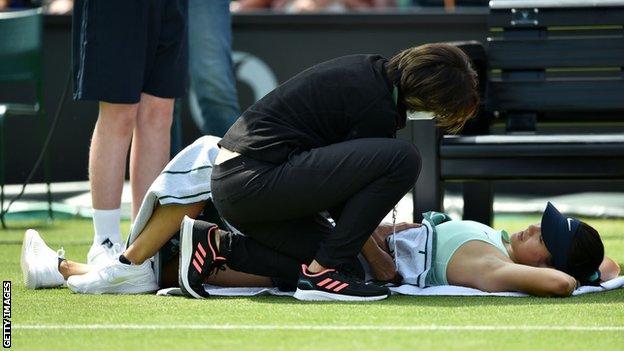 Emma Raducanu's most recent tournament was at Nottingham where she retired with a side strain
Emma Raducanu's most recent tournament was at Nottingham where she retired with a side strainSince her US Open triumph, Raducanu has had three mid-match retirements as a series of niggles have hampered her during what is her first full year on the WTA tour.
She struggled with a blister on her racquet hand in her Australian Open second-round defeat in January, retired with a leg injury in an opening-round match in Mexico in February, was bathing her blistered feet in surgical spirit at a Billie Jean King Cup tie in April and had a back issue in Madrid in May.
She also had Covid towards the end of last year, while her Wimbledon build-up has been less than ideal after a side strain forced her to retire just seven games into her opening match in Nottingham. She then withdrew from Birmingham because of the issue and did not play at Eastbourne.
She has previously said her physical issues were frustrating and that she was doing everything she could to overcome them.
It is very possible that had her profile not rocketed because of the US Open success, the natural process of her body becoming more robust to cope with the rigours of tour life would not have attracted as much attention.
Three-time Grand Slam champion Andy Murray's mother Judy pointed out earlier this month that her son had "a number of recurring physical problems" when moving up from the juniors to the main tour.
In a piece in The Daily Telegraph, she wrote: "In particular, he suffered from a lot of cramping. His body was perfectly ready for the demands of the lower rungs of the circuit but not necessarily for the heavier hitting, the longer, more rigorous rallies and stronger opponents he came up against on the Tour.
"What's becoming increasingly clear is that Raducanu's body needs time to mature."
Is her ranking a real reflection of her form?
If you took off the 2,000 rankings point she won at the US Open, her ranking would be 60-something in the world rather than 11.
Clearly she won those points - and in brilliant fashion - but they have elevated her to a position that could be seen as higher than what the rest of her results would suggest is her 'natural' ranking.
She has not won three matches in a row since her New York triumph and her two Grand Slam tournaments since then - the Australian and French Opens - have ended in the second round.
With the ranking, comes not just the expectation from the public but also from the other players.
"It's different when you are someone who may have a target on their back," Raducanu, who was ranked 338 going into last year's Wimbledon, said earlier this year.
"Everyone raises their game, wants to play well, wants to beat you, take you out. That's something I have definitely kind of learned on the tour this year and just accepted that."
Are off-court activities taking up too much time?
Raducanu's agent, Max Eisenbud, doesn't think she is being overburdened by commercial demands. He told the BBC's Sports Desk podcast that IMG had "left million of dollars off the table" by limiting her to a maximum of 18 sponsor days a year.
Latvian Jelena Ostapenko, who won the 2017 French Open as a 19-year-old, can relate to Raducanu and the whirlwind that she is still in as she features on magazine front covers, is invited to glitzy events and fills her Instagram page with plugs for the nine big brands with which she has got sponsorship deals.
With a Grand Slam title comes the off-court opportunities - some lucrative, some glamourous, all time-consuming.
"The good thing is everyone knows you back home and everyone is looking at you as an idol," Ostapenko, 25, told BBC Sport.
"But the tough thing was just to get used to all this pressure, things change around you, everyone wants interviews, photo shoots all these things but you still need to practise at the same time.
"So it was really hard to get used to it and also everybody expecting you to win every tournament.
"I needed some time to get used to it. I think I was not ready to win a Grand Slam at that early age because it's a dream of every tennis player and when you achieve it at the age of 19 you maybe also lose a little bit of motivation."
Tracy Austin, who won the US Open as a 16-year-old in 1979, said she felt like she was "being pulled" by all the new demands.
"My world went upside down because two days later I was on every morning show in the United States, I was getting contracts thrown at me," the American told the Sports Desk.
"I was still a teenager and everybody was trying to consume every part of my day, and I just wanted to be a kid and I just wanted to play tennis."
Raducanu said last year that she would never cancel a training or practice session for any off-court commitments, but she may still find she gets asked if her time is being squeezed too much.
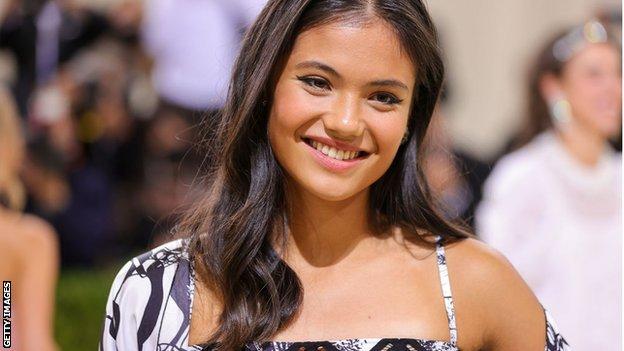 Emma Raducanu joined celebrities at the Met Gala days after her US Open triumph
Emma Raducanu joined celebrities at the Met Gala days after her US Open triumphDoes it matter that she hasn't got a coach?
Raducanu has been unable to settle on a coach over the past year.
Nigel Sears was replaced by Andrew Richardson after last year's Wimbledon, but Richardson's contract was not renewed despite Raducanu's success in New York.
Torben Beltz was appointed in November but they parted ways in April. The LTA's head of women's coaching Iain Bates has been working with Raducanu since then.
Two-time US Open champion Austin suggested it might be good for Raducanu to possibly stick with one for a bit longer while she tries to navigate the sudden rise in her profile and ranking.
"There is so much you have to contend with," she said.
"You need a really good team around you that includes your family making sound decisions. Is this really important? Is this going to help me? Is this going to possibly derail my career?
"I think it would be beneficial for Emma to find someone that she is very comfortable with and stay with them for a bit of time so that you can make a list. What do we need to work on? Where are the deficiencies? Where are the strengths? I need to improve both of them and just get that comfort level personally."
Will she ever win another Grand Slam?
Of course no-one can possibly know the answer to that.
Serena Williams' former coach Patrick Mouratoglou is among those to predict she can win a lot more major trophies but former British number one John Lloyd may have put it best during his BBC commentary at Queen's last week:
"I don't think she will be a one-Slam wonder - and if she is, so what? That's pretty special too."

- Saudi Arabia's $2bn golf series: What's the controversy surrounding the new tournament?
- Our Falklands War: Unflinching personal experiences of a short but brutal war


 2 years ago
35
2 years ago
35

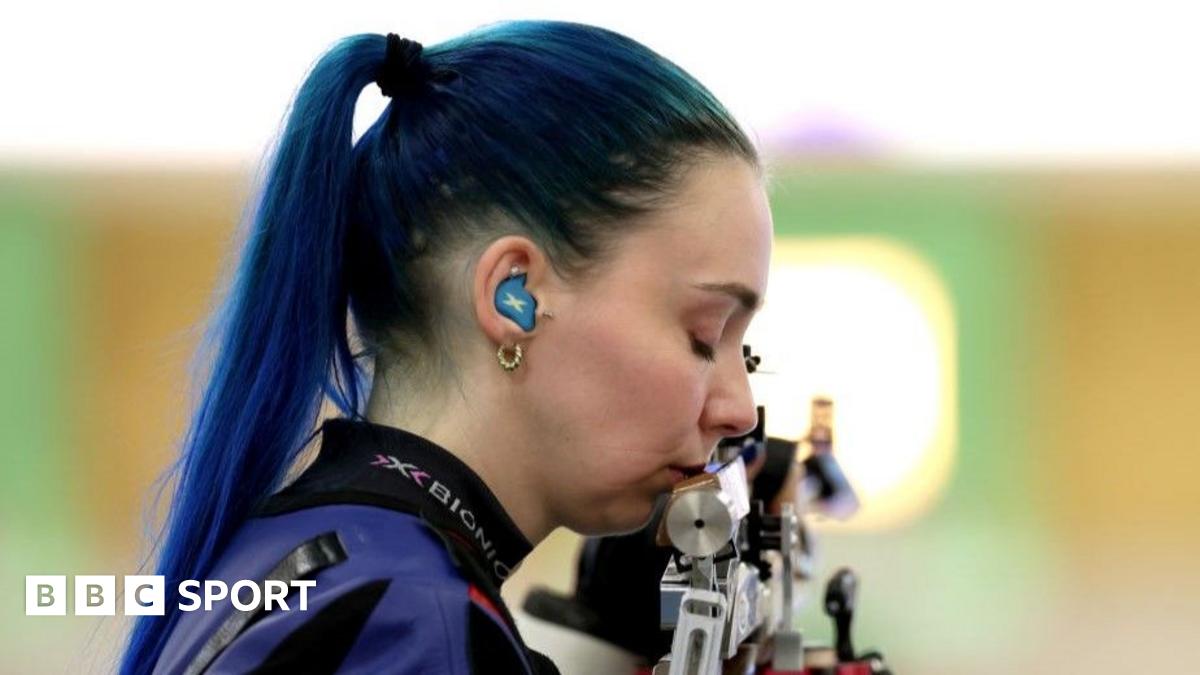
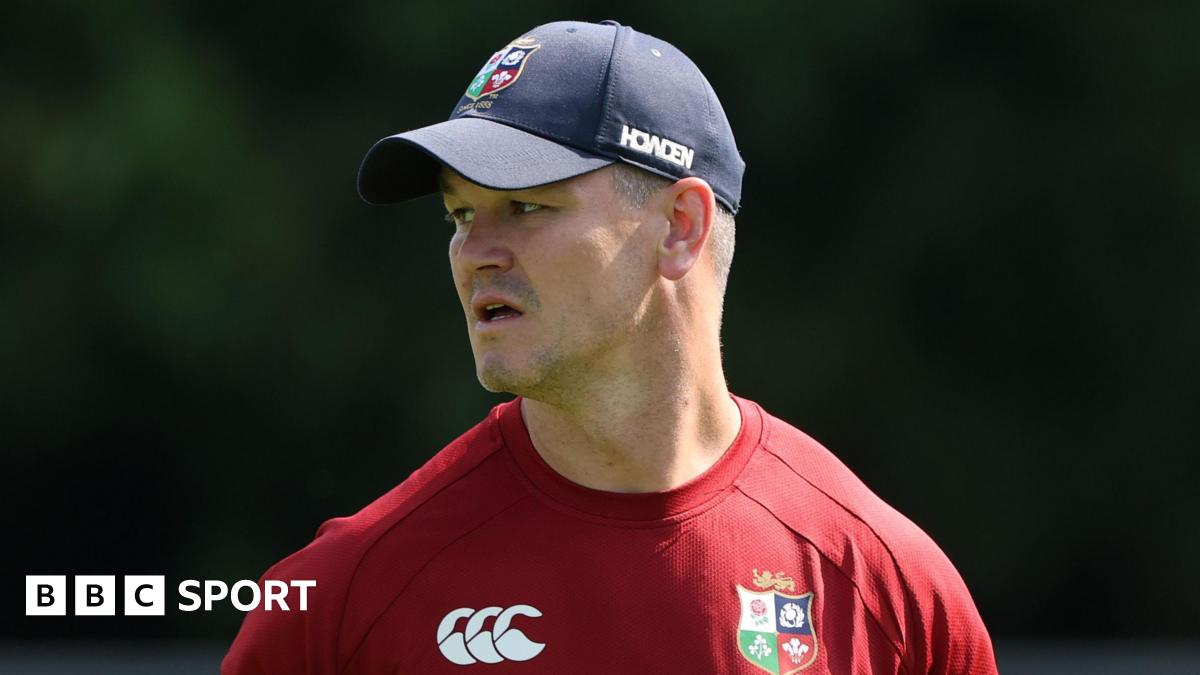





 English (US) ·
English (US) ·